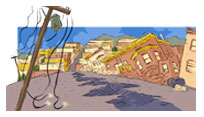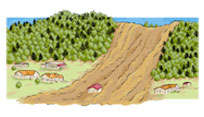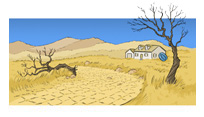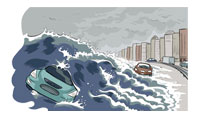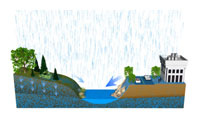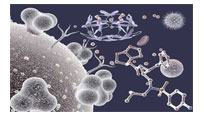Floods
Do’s and Don’t’s
- DO keep your emergency kit with you, safe and dry
- DO watch out for your children at all times AND DO NOT allow them to swim or play in flood water
- DO take care of elderly people – do not allow their feet to remain submerged in water / keep them dry as far as possible
- DO take particular care of people with special needs such as restricted mobility, eyesight difficulties or hearing difficulties – they may need assistance in responding to emergency warnings and you should plan for this
- DO take note of the health of your family and community members.
- DO evacuate to higher ground where possible
- DO listen to local announcements over loudhailer / public broadcast, radio or TV where possible – and carefully follow all advice and warnings
- DO NOT wade through flood water
- DO NOT eat food which has been in contact with flood water
- DO NOT drink water from wells; ONLY drink water which has been boiled, or supplied in bottles
- DO NOT use gas, electricity or electrical appliances which have come into contact with flood water – until they have been safety checked
- DO NOT walk near river banks, sand bag mounds or canal edges – these may collapse
If you must prepare to evacuate, you should:
- Secure your home. If you have time, bring in outdoor furniture. Move essential items to an upper floor.
- Turn off utilities at the main switches or valves if instructed to do so. Disconnect electrical appliances. Do not touch electrical equipment if you are wet or standing in water.




